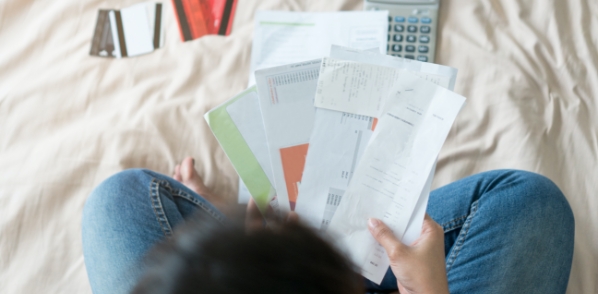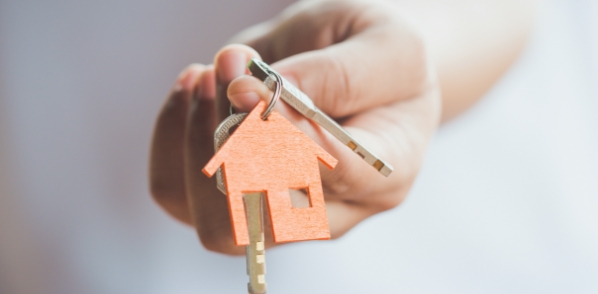What is a housing debt?
Regardless of whether you are a homeowner with a mortgage to pay or are renting your home, you’ll be expected to make monthly payments towards the property.If you’re unable to cover the monthly costs you can quickly find yourself in housing debt and may need help to avoid further financial problems.
According to industry figures, the total household debt in Canada has increased by 4% since the start of the pandemic – partly driven by a boom in the housing market in the middle of 2020.
The percentage of high-cost loans, defined by the bank as more than 4.5 times a household’s income, has also hit an all-time high.
The most common types of housing debt are mortgage and rent arrears with thousands of Canadian’s struggling to pay for the roof over their heads.
Write off up to 80% of your unaffordable debt – Check if you qualify!
Mortgage arrears
Not many people have a lump sum of money to buy a property outright during the home buying process, so instead, they take out a loan from a mortgage lender.According to figures from Statistics Canada, in the first half of 2021 Canadians added $81.6 billion in mortgage debt.
This is a stark rise in comparison to the total mortgage debt of 2020 which was $108.6 billion.
While becoming a homeowner is one of the most common financial goals in Canada, it’s important not to lose sight of how much you can afford to pay towards housing expenses.
In the spring of 2021, the Bank of Canada warned that many households have an unmanageable debt to income ratio as people take on large mortgage payments compared with their income.
This can make it more difficult to deal with other outstanding debt and limit the flexibility to deal with an unexpected financial situation such as job loss.
When you sign a mortgage agreement, your provider will then act as your creditor. You will make monthly payments towards your mortgage in the same way you might repay your credit cards.
The amount you pay each month will be dictated to by your down payment – a larger down payment will mean you need to pay less each month.
If you have a problem keeping up with monthly payments, you will find yourself in arrears.
Like any kind of debt, missed payments will be recorded on your credit report and your mortgage provider may try to force you to pay what you owe, including potentially repossessing your home.
Rent arrears
When you rent your home you will often face similar housing expenses as homeowners. However, instead of owing money to a mortgage provider, your landlord will act as your creditor.You’ll be required to make a monthly payment to your landlord every month. If you start to struggle or stop paying rent, you’ll be considered in rent arrears.
As you don’t own the property repossession isn’t an option, but your landlord can take action to have you evicted from your home.
Debt Solution Finder
Discover the ideal debt solution for your needs with our debt solution finder.
Can you get a mortgage if you’re in debt?
It’s important to remember that not all debt is bad. In fact, it is actually a necessity to help people build their credit score and prove they are capable of repaying when they borrow money.However, you need to make sure you only take on credit you can manage as falling behind on payments can have a negative impact on your credit score and stop you from getting more debt in the future.
Your debt load should not be more than 44% of your income. This percentage, known as the total debt service (TDS) ratio, includes all monthly housing expenses as well as all of the other debt you owe. This can include smaller debts as well as personal loans, home equity loans, credit card bills and lines of credit.
It’s important to be aware that you may still qualify for a mortgage even if your TDS ratio is slightly higher.
However, if you have a high TDS you are increasing the risk of hitting your credit limit with debts you can’t afford.
Other debts that make up your TDS can include:
- Credit card debt
- Lines of credit
- Student loans
- Car loans
- Child or spousal support
- Any other debts
Can I get a mortgage with bad credit?
Your credit report plays a very important part in a mortgage application. A lender will look at your credit report before approving your mortgage.It’s important to check your credit report your report to make sure it doesn’t contain any errors.
If you don’t have a good credit score it can impact your ability to get a mortgage. Your lender may also:
- Only consider your mortgage application if you have a large down payment
- Require you to have a person co-sign the mortgage with you
- Decide to approve a mortgage for a lower amount or a higher interest rate
- Require you to have mortgage loan insurance, even if you have a down payment of 20% or more
Here’s an example of how we can help
Let’s say you owe…
CRA Debt
$13,020.92
Canadian Tire Card
$8,244.36
TD Bank Overdraft
$1,539.09
Utilities Arrears
$760.68
CashMoney Loan
$2,302.40
Student Debt
$3,923.50
Total amount owed:
$27,790.96
Repayments reduced by 88%
How do I manage poor rental history?
If you’re unable to get a mortgage and are looking to rent a home, it’s important to be aware of your rental history.A negative rental history can have a big impact on your ability to find a new home.
Your rental history takes into account things like late rental payments, bounced cheques, excessive damage and previous evictions to name just a few.
If your poor rental history has been caused by financial issues that have since been resolved, you should speak with the landlord.
Admitting you’ve struggled with debt isn’t easy but this could be an opportunity to let your landlord know you have a better handle on your money and ability to pay.
This can be particularly helpful if your credit score and current income reflect the fact that you have more money.
What help is available for problem debts?
No matter the reason behind your debt, if you’re struggling to cover the cost of what you owe it’s important not to bury your head in the sand.There is a wide range of debt help options available to help better manage your debt payments.
You might consider getting support if you’re unable to make your monthly payments or find that you’re only making minimum payments that barely cover the interest rates.
If you’re worried about paying for mortgage or rent arrears, speak to us.
Our debt experts can talk you through a range of options, including debt consolidation and a consumer proposal that can help combine multiple payments into one affordable monthly payment.
Write off up to 80% of your unaffordable debt
We’ve helped thousands of people, just like you, write off unsecured debt they can’t afford and enjoy a life free of pressure from the people they owe money to.
If you’re looking for help, or you’re worried about your ability to repay the debt you owe, A. Fisher & Associates is here to support you.
For free advice and guidance tailored to your financial situation, you can talk to one of our debt experts today. Give us a call for free on 416-842-0040





